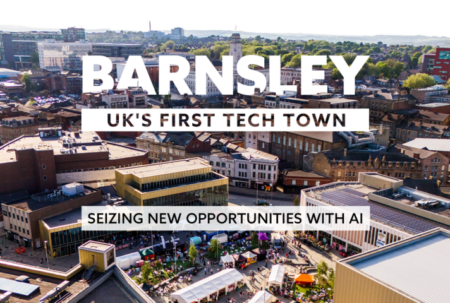The UK government has pledged £30m to support the commercialisation of university-led research across four key regional clusters, in a move designed to unlock high-growth opportunities in emerging sectors such as robotics, automation, agri-tech and life sciences.
Backed by Research England, the initiative aims to tackle longstanding barriers preventing spinout success – such as access to funding, commercial expertise and technical talent – by fostering stronger links between academia, industry and investors.
Four new regional projects will receive multi-year funding to build the infrastructure needed to incubate start-ups, attract inward investment and support scale-up activity.
One of the projects, ‘Forging Ahead / Forging Beyond’, will receive nearly £10m to support spinout generation in the Midlands, with a specific focus on advanced manufacturing, net zero technologies and digital innovation.
The programme will draw on the strengths of 16 universities including Loughborough, Aston, Birmingham and Warwick to develop talent pipelines and establish a dedicated innovation support network.
Meanwhile, the ‘Strategic Commercialisation Ecosystem North East (SCENE)’ project will receive £8m to enhance commercial engagement across the region’s universities and boost spinout activity in collaboration with sector bodies and Catapults.
Additional investments include £5m for agri-tech ventures in East Anglia and Lincolnshire, and £4m to strengthen the biologics cluster in Merseyside, focusing on therapeutics and scale-up infrastructure.
READ MORE: UK government announces £13.9bn to drive innovation and economic growth
UK science minister Lord Vallance said the funding would help “turn brilliant ideas into businesses that attract investment and sustain jobs”, reinforcing the government’s Plan for Change industrial growth strategy.
The announcement is supported by the Government Office for Technology Transfer, which has published two new guidance documents to help public sector researchers navigate the spinout process, including options for licensing, joint ventures and equity creation.
Industry response has been positive. Ana Avaliani, director of the Royal Academy of Engineering’s Enterprise Hub, said: “This investment and guidance will enhance support for fledgling spinouts, helping address skills and funding challenges while enabling vital research to meet real-world challenges.”
The initiative follows a record year for UK academic spinouts, which collectively secured more than £2.6bn in funding – up nearly 40% year-on-year – according to the Royal Academy’s Spotlight on Spinouts 2025 report.
For robotics and automation innovators, the funding signals a renewed national focus on transforming the UK’s research excellence into globally competitive, commercially successful ventures.
Achievements and innovations in retail and e-commerce, healthcare and pharmaceuticals, food and beverage, automotive, transport and logistics, and more will be celebrated at the Robotics & Automation Awards on 29 October 2025 at De Vere Grand Connaught Rooms in London. Visit www.roboticsandautomationawards.co.uk to learn more about this unmissable event for the UK’s robotics and automation sectors!









